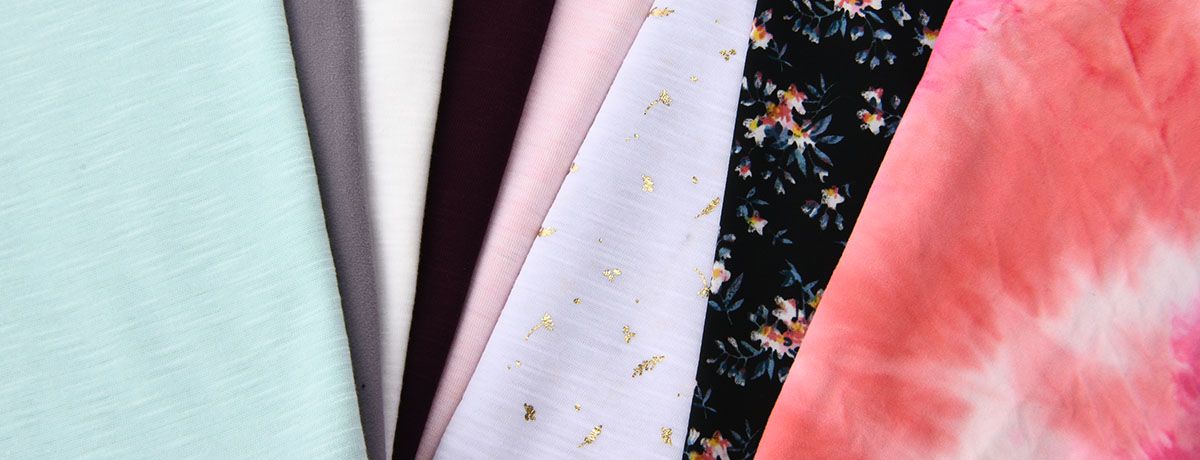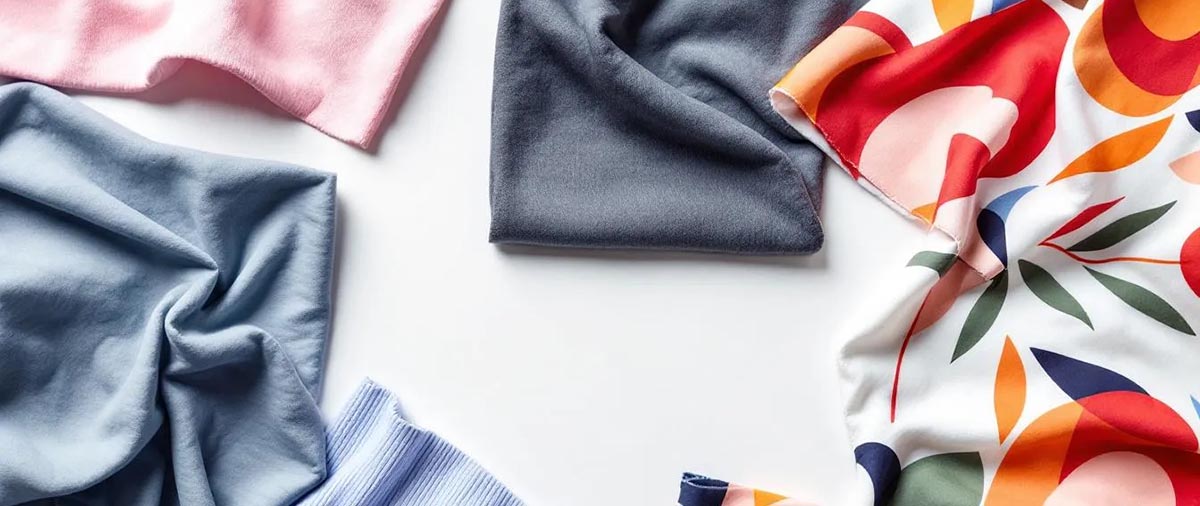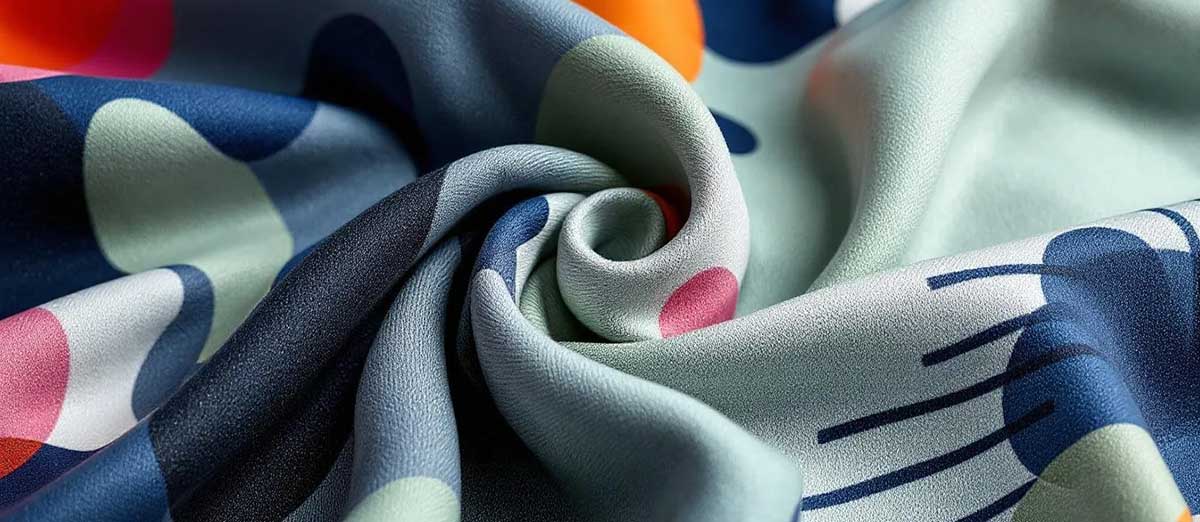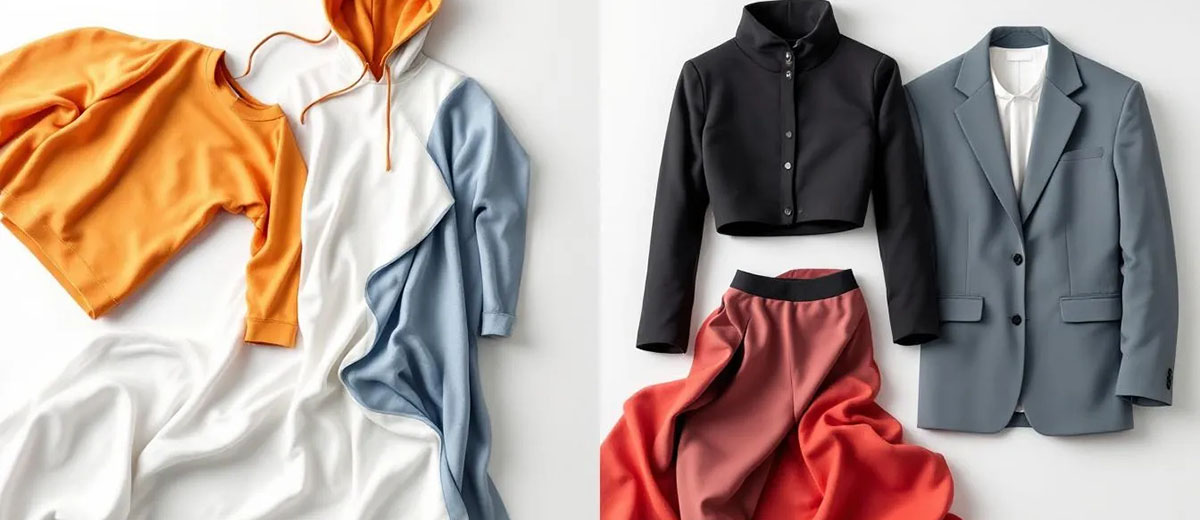Jersey Material Fabric: A Comprehensive Guide to Its Benefits and Uses

Jersey material fabric is a stretchy, soft, and breathable textile perfect for comfortable clothing like T-shirts and dresses. This guide will cover its types, benefits, and common uses to help you understand why jersey fabric is so versatile.
Key Takeaways
-
Jersey fabric is a versatile, knitted material known for its softness, breathability, and elasticity, making it suitable for a wide range of applications from casual wear to activewear.
-
There are different types of jersey fabric, including single jersey, double jersey, stretch jersey, jacquard jersey, and viscose jersey, each offering unique properties and suitable for various garment types.
-
MH provides high-quality jersey fabrics with customization options, bulk supply, and a trusted industry reputation, catering to diverse market needs across fashion and textile applications.
What is Jersey Material Fabric?

Jersey fabric is a knitted material made by intertwining a single yarn into loops, resulting in a soft, stretchy fabric that offers exceptional comfort and breathability. While cotton is a common material used in jersey knit fabric, it can also be made from wool, polyester, viscose, or blends of these fibers. This versatility makes jersey fabric suitable for a wide range of applications, from casual T-shirts to more sophisticated dresses and undergarments.
One of the most appealing aspects of jersey fabric is its elasticity, allowing for ease of movement and a comfortable fit. Whether you’re wearing a T-shirt, a pair of leggings, or a dress, the breathability and softness of jersey fabric contribute to its widespread popularity. This fabric’s ability to wick moisture away from the skin further enhances its practicality for everyday wear.
Types of Jersey Fabric
Jersey fabric comes in different types, each with its unique properties and applications. Understanding these differences can help you choose the best fabric for your needs, whether you’re looking for something lightweight and flexible or more structured and durable.
Single Jersey
Single jersey is a lightweight and flexible fabric, making it a popular choice for clothing items like T-shirts, dresses, and skirts. Key characteristics of single jersey fabric include:
-
Consists of a single sheet of knit fabric
-
Has a smooth texture on one side and a slightly piled texture on the other
-
The single knit structure makes it lighter compared to double knit fabrics
-
Offers a comfortable fit for everyday wear
Single jersey often incorporates elastane, offering four-way stretch that enhances flexibility and comfort, making it ideal for garments like sweatshirts and lightweight sweaters. Its adaptability and comfort make single jersey a staple in casual and activewear collections.
Double Jersey (Interlock)
Double jersey, also known as interlock, is a thicker and more stable fabric compared to single jersey. Its characteristics include:
-
Knitted with two sets of needles
-
Reversible fabric
-
Less prone to curling at the edges
-
More durable fabric
-
Stretches crosswise
-
Drapes well
These features make it suitable for more structured woven garments.
Due to its stability and soft feel, double jersey is often used for baby clothes, pants, and uniforms. The two layers construction adds durability, making it reliable for garments that require frequent wear and washing.
Jacquard Jersey
Jacquard jersey knits stands out for its unique designs, created through a specialized knitting technique. While it is less stretchy than other types of jersey fabrics, its intricate patterns make it a favorite for more decorative garments.
This rayon fabric adds a touch of elegance and uniqueness to clothing items made from silk with matte or shiny colors.
Stretch Jersey
Stretch jersey combines traditional materials like wool or polyester with spandex to enhance its elastic properties. This blend results in a fabric that is stretchy, durable, and quick-drying, making it ideal for sportswear and activewear. The added spandex allows the fabric to move with the body, providing comfort and flexibility during physical activities. Additionally, synthetic fibers contribute to the overall performance of the material.
Stretch jersey blends comfort and performance, making it ideal for leggings, yoga pants, and other athletic garments. Maintaining shape and providing support with less stretch without sacrificing comfort makes it versatile for various applications.
Viscose Jersey
Viscose jersey is renowned for its luxurious feel and smooth texture, making it a favored choice in high-end fashion. The fabric drapes beautifully, adding a touch of elegance to dresses, skirts, and other garments. Its soft texture and luxurious drape make viscose jersey ideal for creating sophisticated and upscale fashion items.
Viscose jersey’s breathability and comfort make it suitable for everyday wear and special occasions. This blend of luxury and practicality makes it versatile for various fashion uses.
Key Features of Jersey Fabric

Jersey fabric is celebrated for:
-
Its softness, providing a comfortable feel against the skin.
-
Being a popular choice for garments worn close to the body, such as T-shirts, underwear, and pajamas.
-
Its knitting technique that enhances elasticity, allowing the fabric to stretch and recover, maintaining the shape and fit of garments.
The breathable nature of jersey fabric allows for excellent air circulation, keeping the wearer cool and comfortable. This feature, combined with its moisture-wicking properties, makes jersey fabric ideal for activewear and sportswear. Additionally, jersey fabric is naturally resistant to wrinkles, making it a practical choice for everyday wear and easy maintenance.
Another key feature of jersey fabric is its versatility. It includes various types such as:
-
Single jersey
-
Double jersey
-
Stretch jersey This fabric can be tailored to meet specific needs, from casual wear to high-performance sportswear. Durability and ease of care further enhance its widespread appeal.
Common Applications of Jersey Fabric

Jersey fabric’s introduction to women’s fashion by Coco Chanel revolutionized casual garments, making them stylish yet comfortable. This fabric is popular for creating casual garments like T-shirts and lightweight dresses due to its comfort and breathability. The stretchiness of jersey fabric makes it ideal for leggings and yoga pants, providing freedom of movement and support.
In sportswear, jersey fabric is perfect for athletic shirts, tank tops, and shorts, facilitating comfort and ease of movement. Its moisture-wicking properties enhance performance during workouts, making it a preferred choice for activewear. The softness and comfort of jersey fabric also make it a top choice for sleepwear such as pajamas.
Jersey fabric is often used in uniforms due to its comfort and ease of movement required in various professional settings. Typical applications of jersey fabric also include kidswear, such as casual T-shirts and dresses, emphasizing comfort and wearability. Its versatility and practicality make jersey fabric a staple in many wardrobes.
Sewing Tips for Jersey Fabric
Sewing jersey fabric can be a rewarding experience if you follow a few essential tips:
-
Use jersey (ball-point) needles or stretch needles to prevent damage to the fabric.
-
When using twin needles, ensure they are ball-point to avoid causing runs in the fabric.
-
Employ stretch stitches to help maintain the fabric’s elasticity, ensuring a neat and durable finish.
To prevent puckering, maintain alignment, and reduce stretching during sew:
-
Reduce presser foot pressure.
-
Use a walking foot.
-
Use a dual feed foot to make sewing jersey fabric easier and more effective, ensuring a professional and durable finish.
Customization Options with MH
MH offers a range of customization options to meet specific market demands, including:
-
Different levels of elasticity to create garments that fit a wide range of body types
-
Custom color options
-
Custom print options
-
Custom elasticity options These options enable the creation of unique designs tailored to your needs.
As a leading manufacturer and wholesaler of jersey fabrics in China, MH ensures high-quality materials and innovative solutions for all your fabric needs. Whether you’re looking to create casual wear, activewear, or high-end fashion items, MH has the expertise and resources to bring your vision to life.
Why Choose MH for Jersey Fabrics?
With over 25 years of experience in knit fabric production and export, MH is a trusted name in the industry. MH provides:
-
Bulk wholesale supply with factory-direct pricing, ensuring the best value for your investment
-
A wide range of weights (120–300gsm)
-
Various compositions to help you find the perfect jersey fabric for any application
With reliable delivery and global export to over 150 countries, MH is a preferred choice for fashion brands, garment factories, and fabric wholesalers worldwide. The comfort, flexibility, and affordability of MH’s jersey fabrics make them ideal for a variety of uses.
Summary
In summary, jersey fabric offers a unique combination of comfort, elasticity, and versatility, making it a popular choice for a wide range of applications. From casual wear to high-performance sportswear, the various types of jersey fabrics cater to different needs and preferences. Understanding the key features and practical sewing tips can help you make the most of this incredible fabric.
Choosing MH for your jersey fabric needs ensures high-quality materials, reliable service, and a range of customization options. Whether you’re a fashion designer, garment manufacturer, or fabric wholesaler, MH has the expertise and resources to support your projects. Embrace the versatility and comfort of jersey fabric and take your creations to the next level.
Frequently Asked Questions
Is jersey material better than cotton?
Jersey material is often considered superior to traditional cotton due to its elasticity and breathable comfort, making it a preferred choice for many garments. Its unique knitting technique enhances its flexibility without the need for synthetic blends.
What materials are commonly used in jersey fabric?
Jersey fabric is typically made from cotton, polyester, viscose, or various blends of these materials. This versatility makes it a popular choice in clothing production.
What are the key features of jersey fabric?
Jersey fabric is characterized by its softness, elasticity, breathability, moisture-wicking properties, and wrinkle resistance, making it an excellent choice for comfortable and versatile clothing.
What are some common uses of jersey fabric?
Jersey fabric is commonly used for casual garments such as T-shirts, dresses, sleepwear, and sportswear, making it a versatile choice for both everyday and active wear.
How can I sew jersey fabric effectively?
To sew jersey fabric effectively, use ball-point or stretch needles and employ stretch stitches. Additionally, reduce presser foot pressure and consider a walking foot for optimal results.


